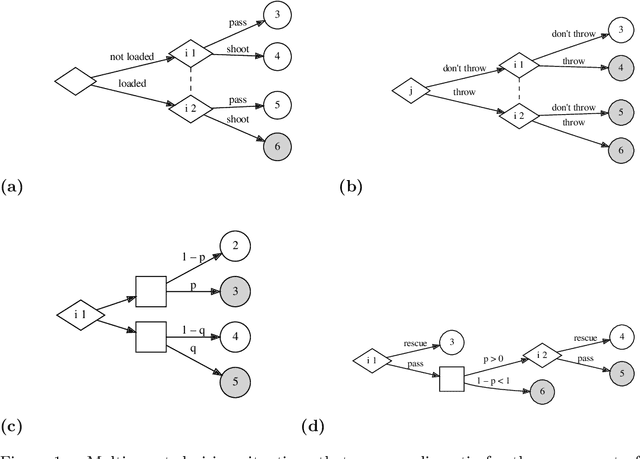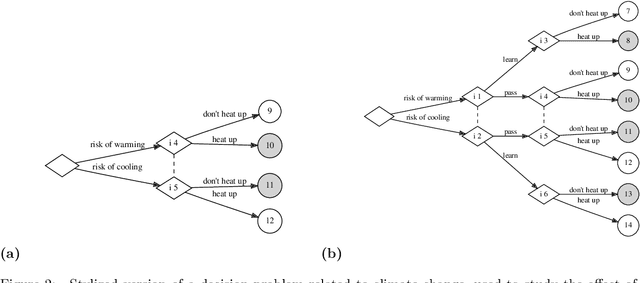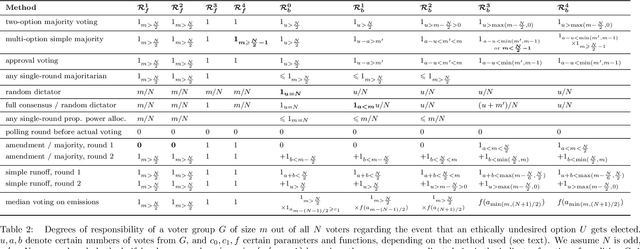Sarah Hiller
Degrees of individual and groupwise backward and forward responsibility in extensive-form games with ambiguity, and their application to social choice problems
Jul 09, 2020



Abstract:Many real-world situations of ethical relevance, in particular those of large-scale social choice such as mitigating climate change, involve not only many agents whose decisions interact in complicated ways, but also various forms of uncertainty, including quantifiable risk and unquantifiable ambiguity. In such problems, an assessment of individual and groupwise moral responsibility for ethically undesired outcomes or their responsibility to avoid such is challenging and prone to the risk of under- or overdetermination of responsibility. In contrast to existing approaches based on strict causation or certain deontic logics that focus on a binary classification of `responsible' vs `not responsible', we here present several different quantitative responsibility metrics that assess responsibility degrees in units of probability. For this, we use a framework based on an adapted version of extensive-form game trees and an axiomatic approach that specifies a number of potentially desirable properties of such metrics, and then test the developed candidate metrics by their application to a number of paradigmatic social choice situations. We find that while most properties one might desire of such responsibility metrics can be fulfilled by some variant, an optimal metric that clearly outperforms others has yet to be found.
 Add to Chrome
Add to Chrome Add to Firefox
Add to Firefox Add to Edge
Add to Edge